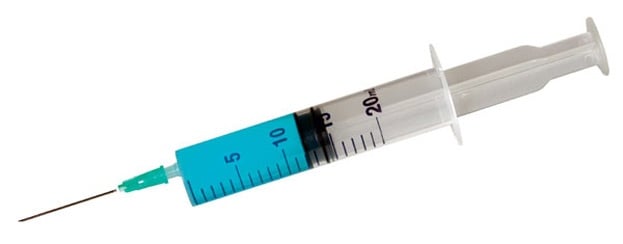
An epidural is a form of pain relief administered during labour by an anaesthetist. Pain-killing drugs are injected into your spinal column at the small of your back via a catheter, around the nerves that carry the pain signals from your lower abdomen to your brain.
The result is that your abdomen feels numb and it is a very effective relief from pain. Epidurals are the most popular form of pain relief requested by labouring mothers: in the US the rate sits at 50%.
Who can have an epidural?
Dr Riaz Mohamed is a Johannesburg-based anaesthetist with a special interest in obstetrics who has administered over 5,000 epidurals. He explains that anyone can get an epidural except a patient who is allergic to local anaesthetics or has a severe bleeding disorder.
According to the American College of Obstetrics and Gynaecology, if a patient is in labour and in pain, and wants pain relief, an epidural can be given. “It does not matter how dilated the mother is,” says Dr Mohamed, “I have done epidurals on patients from fully closed to fully dilated.
In the case of an induction, an epidural can be administered before labour has even begun: as long as the patient requires pain relief, the option of an epidural is available.”
The pros and cons
Like anything in life there are always pros and cons (or benefits and risks) and epidurals are no different. Do your research long before your due date so that when you’re in the throes of labour you have all the knowledge to make the choice for or against pain relief. Also, let your birth partner know your preferences.
PROS
- An epidural usually provides excellent pain relief during labour. You continue to have contractions and are able to give birth naturally, but without any pain.
- It is fairly quick: it takes about 20 minutes to insert and set up and "can take anywhere from one to 15 minutes to work depending on your response to the drugs, the concentration of drug used and technique," says Dr Mohamed.
- Once the epidural is in place, most experienced midwives can give top-ups, so you usually don't need to wait for an anaesthetist.
- Unlike other medicated pain relief, such as pethedine (gas and air), your mind remains clear. You may still be aware of your contractions, but will feel no pain.
- If you have high blood pressure, it has a useful side-effect of lowering blood pressure.
- It can be topped up with stronger local anaesthetic if you need a c-section.
CONS
- Not every epidural works 100% every time, but your anaesthetist can adjust the levels if after 30 minutes it seems not to be working.
- Everyone responds differently to the medication: you may shiver, develop an itch or fever and you may need a catheter to empty your bladder. There is also about a 1 in 100 chance of developing a severe headache.
- You will not be able to have an 'active' birth and will need to stay in bed and you will need to be monitored more regularly.
- An epidural can sometimes slow labour down, so you're more likely to be given additional medication to help speed it up, like a Syntocinon drip.
- The pushing stage of your labour can sometimes last longer if you have an epidural.
- Some reasearch has shown that an epidural increases the chance of your child being born with the aid of foreceps or a ventouse, as the effects of the drugs may make it difficult for your baby to move into the correct position.




 Publications
Publications
 Partners
Partners










